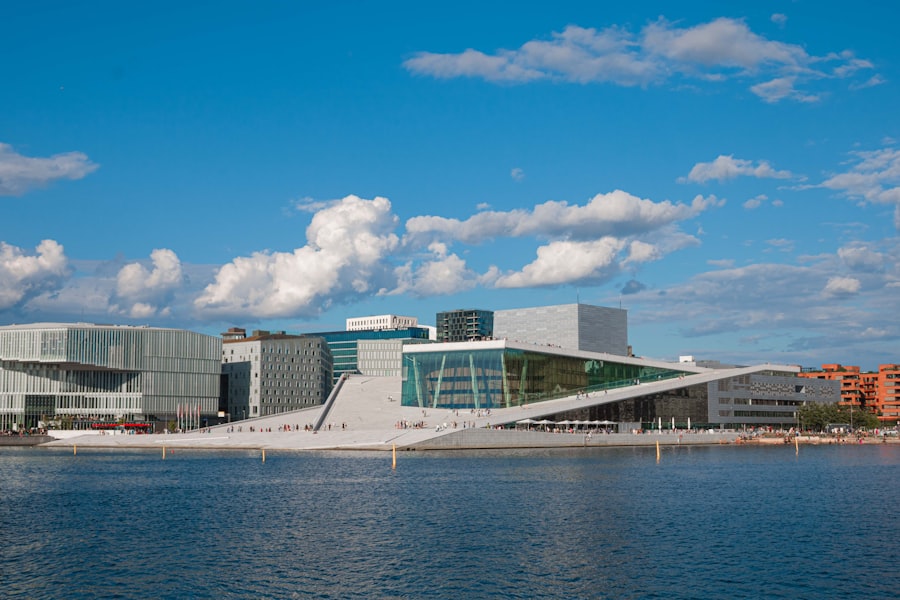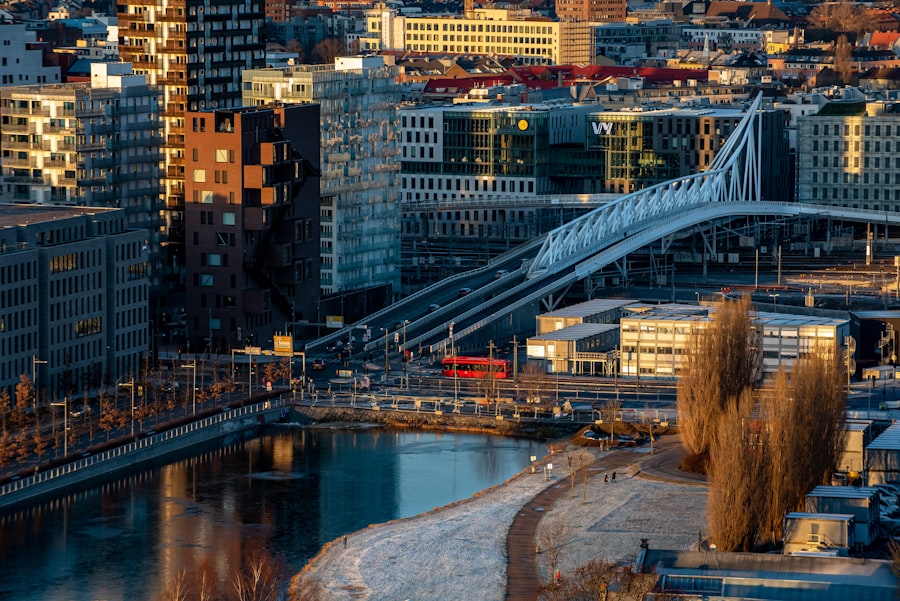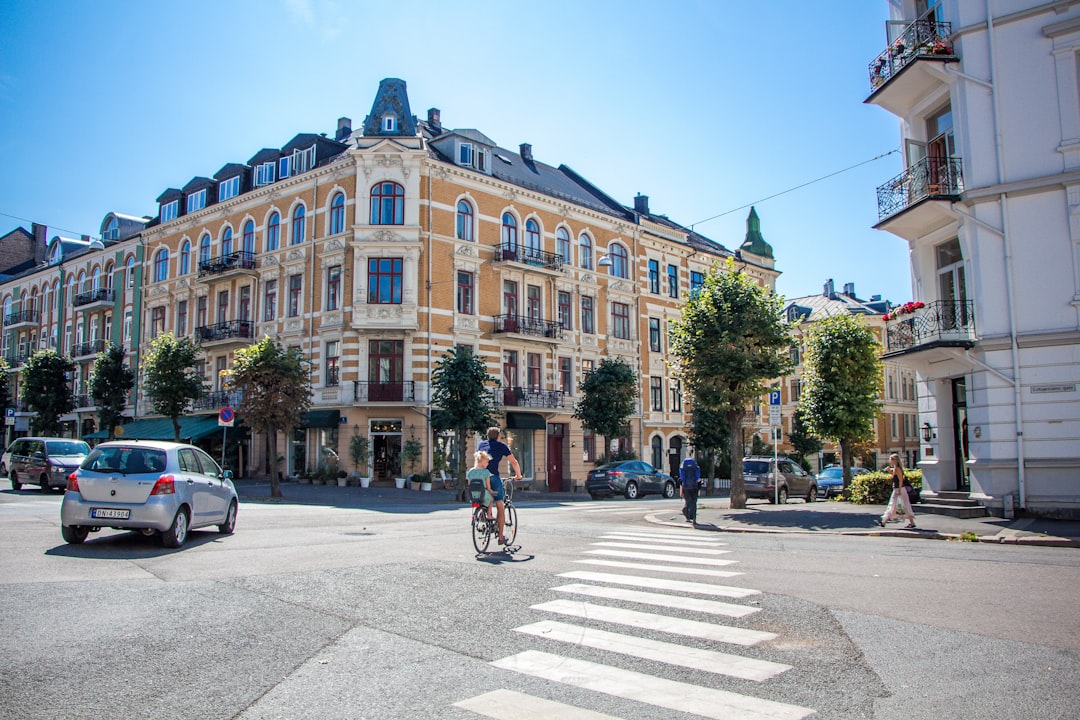In Norway, social etiquette is deeply rooted in the cultural fabric of society. The Norwegians are known for their understated politeness, which manifests in various aspects of daily life. Greetings are typically informal, with a simple “hei” (hi) being the norm among acquaintances.
However, when addressing someone for the first time or in a more formal setting, it is customary to use titles and surnames until invited to use first names. This practice reflects a broader cultural value of respect and equality, as Norwegians tend to avoid ostentation and hierarchy in social interactions. Moreover, the concept of “Janteloven,” or the Law of Jante, plays a significant role in shaping social behaviour.
This unwritten code discourages boasting and promotes humility, leading to a culture where individuals are expected to downplay their achievements. Consequently, conversations often revolve around shared experiences rather than personal accolades. This emphasis on modesty fosters a sense of community and belonging, making social gatherings feel inclusive and warm. Take the first step. Book a consultation with the Norway Relocation Group for your move to Norway.
Summary
- Social etiquette and politeness are highly valued in British culture, with emphasis on saying “please” and “thank you” and maintaining a respectful tone in conversations.
- Nature and outdoor activities hold great importance in British culture, with many people enjoying activities such as hiking, gardening, and picnics in the countryside.
- Traditions and celebrations play a significant role in British culture, with events like Christmas, Guy Fawkes Night, and the Queen’s birthday being widely celebrated.
- Cuisine and dining etiquette in Britain often involve using cutlery, maintaining good table manners, and enjoying traditional dishes such as fish and chips, roast dinners, and afternoon tea.
- Work-life balance and punctuality are important in British culture, with an emphasis on being on time for appointments and maintaining a healthy balance between work and personal life.
Importance of Nature and Outdoor Activities
Norway’s breathtaking landscapes are not just a backdrop for life; they are integral to the Norwegian way of living. The country’s vast fjords, towering mountains, and serene forests offer countless opportunities for outdoor activities, which are highly valued by the populace. Hiking, skiing, and fishing are not merely pastimes but essential components of the Norwegian lifestyle.
The connection to nature is so profound that many Norwegians spend their weekends exploring the great outdoors, often with family and friends. This affinity for nature is also reflected in the concept of “friluftsliv,” which translates to “open-air living.” This philosophy encourages individuals to embrace outdoor life as a means of enhancing well-being and fostering a sense of community. Whether it’s a leisurely stroll through a forest or an adventurous trek in the mountains, Norwegians believe that spending time in nature is vital for mental and physical health.
As such, outdoor activities are not just recreational; they are a way of life that reinforces the bond between individuals and their environment.
Traditions and Celebrations

Norwegian traditions and celebrations are rich with history and cultural significance. One of the most notable events is Constitution Day, celebrated on May 17th, which marks the signing of Norway’s constitution in 1814. This day is characterised by parades, traditional costumes known as “bunad,” and a palpable sense of national pride.
Children play a central role in the festivities, with schools participating in parades that showcase their creativity and spirit. The day is not only a celebration of national identity but also an opportunity for families to come together and honour their heritage. Another important tradition is the celebration of Christmas, which is marked by various customs that vary across regions.
The festive season begins with Advent, leading up to Christmas Eve when families gather for a special meal. Traditional dishes such as ribbe (pork ribs) or lutefisk (dried fish) are served, accompanied by an array of desserts like krumkake and multekrem. The emphasis on family and togetherness during this time reflects the Norwegian value placed on close-knit relationships and community bonds.
Cuisine and Dining Etiquette
Norwegian cuisine is characterised by its simplicity and reliance on fresh, local ingredients. Seafood plays a prominent role in the diet, with dishes such as salmon, herring, and cod being staples in many households. Additionally, game meats like reindeer and elk are popular, reflecting the country’s rich natural resources.
Traditional meals often feature hearty ingredients that provide sustenance during the long winters, with dishes like fårikål (lamb stew) being particularly beloved. Dining etiquette in Norway is relatively straightforward but carries its own nuances. When invited to someone’s home for dinner, it is customary to bring a small gift, such as flowers or chocolates, as a token of appreciation.
During meals, it is polite to wait until everyone is served before starting to eat. Norwegians tend to keep conversation light during meals, focusing on topics that foster camaraderie rather than delving into controversial subjects. This approach ensures that dining experiences remain enjoyable and inclusive for all guests.
Work-Life Balance and Punctuality
In Norway, achieving a healthy work-life balance is not just encouraged; it is considered essential for overall well-being. The typical workweek is structured to allow ample time for personal pursuits, with many companies offering flexible working hours and generous vacation policies. This cultural emphasis on balance stems from the belief that individuals perform better when they have time to recharge and engage in leisure activities.
As such, it is common for employees to leave work promptly at the end of the day to spend time with family or pursue hobbies. Punctuality is another cornerstone of Norwegian work culture. Arriving on time for meetings or appointments is seen as a sign of respect and professionalism.
Norwegians value efficiency and directness in communication, which extends to their approach to time management. Being late can be perceived as inconsiderate, so individuals make a concerted effort to adhere to schedules. This commitment to punctuality not only enhances productivity but also fosters trust among colleagues.
Gender Equality and Social Welfare

Norway is often hailed as a global leader in gender equality and social welfare policies. The country has made significant strides in promoting equal opportunities for all genders in various spheres of life, including education, employment, and politics. Women in Norway enjoy high levels of participation in the workforce, supported by policies such as parental leave that encourage shared responsibilities between mothers and fathers.
This commitment to equality has resulted in a more balanced representation in leadership roles across sectors. Social welfare systems in Norway further reinforce this commitment to equality by providing comprehensive support for families and individuals in need. Access to healthcare, education, and childcare services is considered a fundamental right, ensuring that all citizens have the opportunity to thrive regardless of their background.
This robust social safety net not only enhances quality of life but also fosters a sense of community where individuals feel supported in their endeavours.
Language and Communication
The Norwegian language reflects the country’s rich cultural heritage and diversity. With two official written forms—Bokmål and Nynorsk—Norwegians take pride in their linguistic roots while also embracing modern influences. Language plays a crucial role in communication styles; Norwegians tend to favour directness over ambiguity, valuing clarity in both personal and professional interactions.
This straightforward approach can sometimes be perceived as bluntness by outsiders but is rooted in a desire for honesty and transparency. In addition to Norwegian, many Norwegians are proficient in English, which serves as a bridge for communication with international visitors. The emphasis on language learning from an early age reflects the importance placed on global connectivity and cultural exchange.
As such, engaging with locals in their native tongue is often appreciated and can lead to deeper connections during interactions.
Cultural Diversity and Inclusivity
Norway has become increasingly diverse over recent decades due to immigration from various parts of the world. This cultural influx has enriched Norwegian society by introducing new perspectives, traditions, and cuisines. The government actively promotes inclusivity through policies aimed at integrating immigrants into the community while respecting their cultural identities.
Festivals celebrating different heritages have become commonplace, showcasing the vibrant tapestry of cultures that coexist within Norway. Despite these advancements, challenges remain regarding social integration and acceptance. However, many Norwegians are committed to fostering an inclusive environment where diversity is celebrated rather than merely tolerated.
Initiatives aimed at promoting understanding among different cultural groups are gaining traction, reflecting a collective desire to build bridges across communities.
Education and Learning Environment
The Norwegian education system is renowned for its emphasis on inclusivity and equal access for all students. Education is compulsory from ages six to sixteen, with a strong focus on fostering critical thinking and creativity rather than rote memorisation. Classrooms are designed to encourage collaboration among students, promoting an environment where diverse opinions are valued and respected.
Teachers play a pivotal role in shaping this learning environment by adopting student-centred approaches that cater to individual needs. The emphasis on holistic development ensures that students not only excel academically but also grow socially and emotionally. Furthermore, higher education institutions in Norway are known for their high standards and innovative research opportunities, attracting students from around the globe who seek quality education.
Art, Music, and Literature
Norway boasts a rich artistic heritage that spans various forms of expression including visual arts, music, and literature. The country has produced renowned artists such as Edvard Munch, whose iconic painting “The Scream” continues to resonate globally. Contemporary art scenes thrive in cities like Oslo, where galleries showcase both established artists and emerging talents.
Music also holds a special place in Norwegian culture; traditional folk music reflects the country’s history while modern genres have gained international acclaim through artists like A-ha and Kygo. Literature flourishes as well, with authors such as Knut Hamsun and Jo Nesbø gaining recognition for their contributions to world literature. The celebration of artistic expression underscores Norway’s commitment to cultural enrichment and creativity.
Attitudes towards Personal Space and Privacy
In Norway, personal space is highly valued; individuals typically maintain a respectful distance during conversations unless they are close friends or family members. This preference for personal space reflects broader cultural norms surrounding privacy and autonomy. Norwegians tend to be reserved when it comes to sharing personal information with acquaintances or strangers; this inclination towards privacy fosters an atmosphere of mutual respect.
Moreover, this attitude extends into public spaces where quietness is appreciated; loud conversations or disruptive behaviour can be frowned upon. Such norms contribute to a sense of calm within communities while allowing individuals the freedom to navigate their personal lives without undue intrusion from others. In conclusion, Norway’s rich tapestry of social etiquette, respect for nature, vibrant traditions, culinary practices, work-life balance principles, commitment to gender equality, effective communication styles, cultural diversity initiatives, educational values, artistic expressions, and attitudes towards personal space collectively shape its unique identity.
For those looking to immerse themselves further into this fascinating culture while learning the language effectively, the NLS Norwegian Language School in Oslo offers comprehensive courses tailored for all levels of learners. With experienced instructors dedicated to fostering language proficiency alongside cultural understanding, students can gain invaluable insights into Norwegian society while mastering the language itself—an essential tool for navigating this beautiful country’s rich heritage.
Learn more about the Norwegian classes at the NLS Norwegian Language School in Oslo

